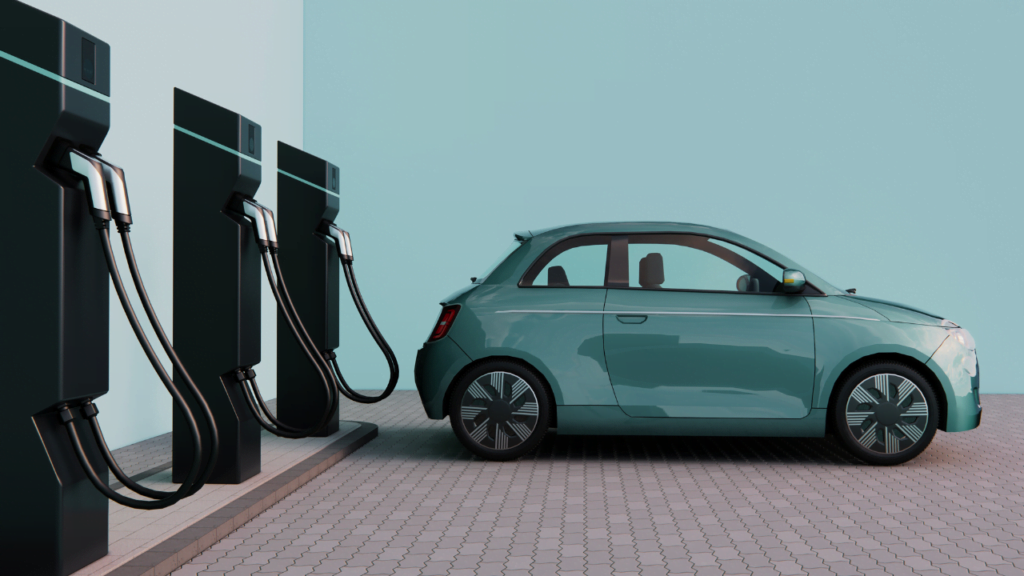If you are looking to buy a car, you must have thought of buying an electric vehicle as they are in increasing demand in India. The investment by Indian automobile industries has also increased to many fold in recent years.
It looks like electric vehicles (EVs) could be a good answer, but are they also a good financial choice for Indian drivers, considering the infrastructure like charging stations, battery life, etc.? Let’s look at the most important things to think about.
Government Push for EVs: A Financial Boon?
The Indian government is actively promoting EV adoption through subsidies and tax benefits. Schemes like FAME II offer financial incentives for EV manufacturers and buyers, reducing the upfront cost of EVs. For instance, the subsidy for two-wheeler EVs can be as high as ₹1.5 lakh, significantly impacting the overall price tag.
Additionally, there is a 5% GST rate for EVs compared to a 28% GST petrol and diesel vehicles that make them more attractive financially. This also makes electric vehicles affordable and the reason why Indian automobile industries are selling it in a range of ₹10-20 lakhs.
Battery Warranty and Recovery of Costs
Now, Most EV manufacturers in India are offering battery warranties between 5 to 8 years or 80,000 km to 1,00,000, whichever comes first. While battery degradation is inevitable, warranties provide peace of mind and limit initial replacement costs. It is recommended to always ask the warranty period and terms and conditions related to battery and its life from the seller. It can help you in managing financial strain due to battery as it is an expensive deal for four wheelers EV vehicles.
However, battery replacements can be expensive, ranging from ₹50,000 to ₹1 lakh depending on the vehicle model and battery capacity. Sometimes, it costs more than ₹2 lakh in many cases. So, always evaluate the company’s review, warranty offers, battery price before buying an electric vehicle.

Financial Calculations: Fuel Savings vs. Upfront Investment
While EVs offer lower running costs due to cheaper electricity compared to petrol or diesel, the upfront cost of an EV is typically higher than its conventional counterpart. However, the government subsidies and lower operating costs can help bridge this gap over time. Here’s a simplified calculation to consider:
Scenario: Compare a mid-range EV with a similar petrol car. considering you are residing in Bangalore City
| Fuel Price (petrol) | ₹101.51 (as on 04-05-2024) |
| Conventional vehicle mileage | 16 km |
| Electric vehicle range | 250 km on full charge |
| Battery Capacity | 40Kwh |
| Daily usage | 40 km daily |
| Charging Cost | ₹10 |
Annual Savings – ₹69,715 (assumption)
| Conventional Vehicle Cost per KM – ₹6.38 Annual Fuel Cost – ₹93,078 | Electric Vehicle Cost per KM – ₹1.60 Annual Charging Cost – ₹23,360 |
In this scenario, we have tried to understand how much you can save. The final decision depends on your financial goals, personal likes, daily usage etc.
Factors to consider before buying EV
- Feasibility in City Traffic: A Stop-and-Go Advantage?
EVs excel in city traffic conditions. Their regenerative braking system recovers energy lost during braking, a significant advantage in stop-and-go traffic scenarios typical of Indian cities like Mumbai, Bangalore cities. This translates to increased efficiency and potentially lower running costs compared to petrol or diesel vehicles, which burn fuel even while idling.
- Charging Infrastructure: While India is working on expanding its EV charging network, it’s still not as widespread as petrol stations. This can be a concern for those with limited access to charging facilities.
- Resale Value: The resale value of EVs is still evolving in India. While early adopters might face a depreciation hit, it’s expected to stabilize as the EV market matures.
- Daily usage: Check how much you use daily and drive long trips on vacations or out of cities. This comparison requires knowing whether EV or Petrol vehicles will be helpful for you or not.
Drive Your Dream: Unlock Interest-Free Car Financing
Conclusion
EVs in India present a compelling financial proposition, especially for city drivers with access to charging facilities. Government incentives, lower running costs, and environmental benefits make EVs an attractive choice.
However, carefully consider the upfront investment, potential battery replacement costs, and charging infrastructure availability before making the switch. By analyzing your individual needs and driving patterns, you can determine if an EV is the right financial and environmental choice for you on the exciting Indian road.











Leave a Reply
View Comments